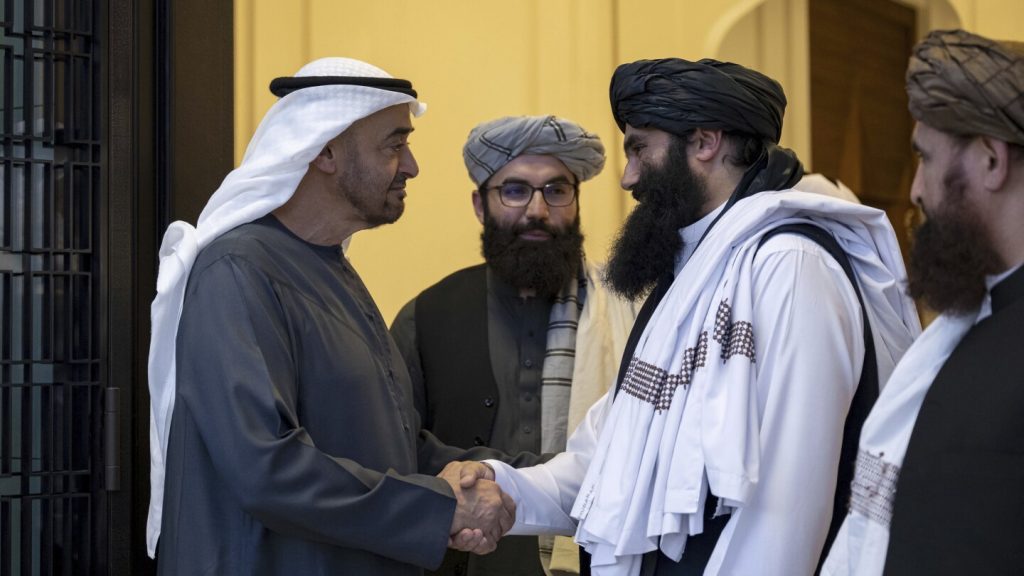The leader of the United Arab Emirates recently met with Sirajuddin Haqqani, an official in the Taliban government who is still wanted by the United States for his involvement in a deadly attack on an American citizen. The meeting highlights the differing views internationally on how to engage with the Taliban, who seized control of Afghanistan in 2021. While the West does not recognize the Taliban as Kabul’s government, other countries in the Middle East and beyond have been reaching out to them. The meeting took place in the Emirati capital, where Sheikh Mohammed bin Zayed Al Nahyan discussed strengthening cooperation and enhancing ties with Haqqani.
The Taliban described the meeting as focused on “mutual interests,” without providing further details. The Taliban’s spy chief, Abdul Haq Wasiq, also participated in the meeting. Haqqani, who is believed to be in his 50s, has been on the U.S. radar for his involvement in various attacks, even after the Taliban took over Afghanistan. The Haqqani network, led by Sirajuddin Haqqani, has been blamed for some of the deadliest attacks against the former Western-backed government in Afghanistan, including suicide bombings and other violent acts.
The U.S. State Department declined to discuss specifics of the visit, but mentioned that United Nations members must seek permission to host sanctioned individuals in their countries. The department highlighted the importance of engaging constructively with the Taliban, particularly in relation to the rights of Afghan women and girls. The UAE has been a key partner in supporting the Afghan people, and the U.S. remains in active communication with its partners on how to engage with the Taliban. The UAE has hosted a Taliban diplomatic mission in the past and has been trying to strengthen its ties with the group.
The international community, led by the United Nations, has been providing aid to Afghanistan as the country faces numerous challenges, including food insecurity, natural disasters, and a shrinking economy. Concerns about human rights violations under the Taliban rule persist, with reports of mass floggings of men and women in Afghanistan over alleged offenses. The U.N. has called on the de facto authorities in Afghanistan to cease all forms of corporal punishment immediately. The situation in Afghanistan remains a critical focus for the international community as it navigates the complex dynamics with the Taliban government.
The UAE’s efforts to solidify its relationship with the Taliban come at a time when other countries, such as China, have also engaged with the group. Qatar has been a key mediator between the U.S. and the Taliban, facilitating multiple meetings between the two parties. The UAE, which sent troops to support the Western coalition in Afghanistan, has been working to establish economic ties with the Taliban, including resuming flights to Kabul International Airport. Despite international efforts to provide aid to Afghanistan, the country continues to face significant challenges, including humanitarian crises and human rights violations under the Taliban’s rule.


